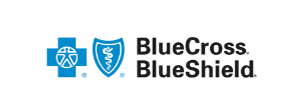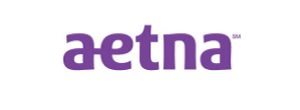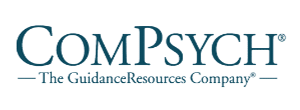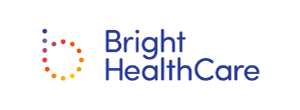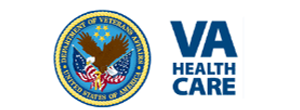Heroin Addiction Treatment Program in Nashville, TN
Heroin abuse is a big problem in Tennessee. Over 70,000 people in the state are addicted to opioids, including heroin. The drug leaves a trail of overdoses, arrests, fatalities, and heartache in its path of chaos. As prescription painkiller usage rises, so does heroin. The surge in fentanyl, a stronger narcotic used to lace heroin, has led to more deadly data. An equally powerful treatment approach is vital to combat the crisis.
Southeast Addiction Center Tennessee is the right choice for lasting heroin recovery. You’ll find the best heroin addiction treatment in Nashville, TN, through Southeast Addiction Center and the rehab programs available. We offer all levels of care, including detoxification, inpatient, and outpatient. If you’re ready to slay the dragon, we have a plan for you.
Heroin abuse in Tennessee is skyrocketing.
- The rate of heroin overdose inpatient stays increased from 7.9 to 8.2 from 2020 to 2021. This is a 3.8% increase.
- Approximately 70,000 people in the state are addicted to opioids (which can include heroin), 2,300 specifically from heroin.
- In 2021, Heroin overdose discharges accounted for 4,033 of all overdoses, including 3,498 outpatient visits and 535 inpatient stays.
- In 2019, overdose death rose to 380 from 367 the previous year.
Heroin Addiction Detox
Heroin addiction doesn’t just harm the healthcare system and the economy. It also hurts the community, the person addicted, and loved ones. It causes a lot of damage all around.
Heroin detox will occur shortly after stopping heroin and can cause severe withdrawal symptoms after ongoing addiction. Enrolling in a reputable substance abuse program is the best way to stay safe during a heroin withdrawal.
Southeast Addiction Center in Nashville, Tennessee, will keep you safe and comfy during withdrawal. Our devoted staff monitors you around the clock to ensure your comfort and safety. A medical detox in a treatment center vastly improves maintaining sobriety.
Anyone abusing heroin and suddenly stopping the drug will experience uncomfortable withdrawal symptoms. Heroin withdrawal can cause a range of effects on the body and mind. The symptoms may vary in intensity and length depending on factors like usage.
Some common effects of heroin withdrawal include:
- Physical symptoms: These may include nausea, vomiting, diarrhea, abdominal cramps, muscle aches, and sweating.
- Psychological symptoms: These may include anxiety, depression, insomnia, irritability, agitation, and cravings for heroin.
- Cognitive symptoms: These may include confusion, trouble concentrating, and memory problems.
- Cardiovascular symptoms: These may include rapid heartbeat and increased blood pressure.
- Respiratory symptoms: These may include difficulty breathing, coughing, and chest pain.
It’s important to note that heroin withdrawal can be uncomfortable and dangerous. Don’t take risks during this vital time. Our team knows how to smoothly steer the course in helping you receive substance abuse treatment.
Our Heroin Addiction Treatment Programs
At Southeast Addiction Center, we understand the grip of heroin. We want to help you feel better. Our top-reviewed treatment center sets the standard.
Southeast Addiction Centers in Nashville operates a network of heroin addiction treatment centers in Tennessee that collectively offer treatment at all levels of care. This enables us to tailor our programs to each client’s specific needs. After detoxification, you want to keep your recovery strong through additional treatment services.
Our residential program, or inpatient, is for those struggling with substance abuse. We provide a supportive and structured environment to help people achieve long-lasting sobriety. Residential drug rehab center offers a complete, evidence-based approach to heroin recovery. We guide our clients to learn how to manage heroin withdrawal symptoms, combat cravings, and foster a healthier lifestyle based on individual needs.
Our partial hospitalization program (PHP) is intense, so patients must finish medical detox to prepare for therapy sessions. PHP focuses on daily therapy and group activities. We ensure each client gets a personalized treatment plan just for them.
Our Intensive Outpatient Program (IOP) keeps you on track. This recovery program helps people handle cravings and emotions and make healthy relationships. IOP connects treatment and real life, lowering the chances of returning to heroin.
Our Outpatient Program (OP) applies your skills to real life. Outpatient fits into everyday life with therapy and support. This infusion makes it easier to adjust to a sober life. Clients can work jobs and get help with health, legal, and money issues.
Southeast Addiction Center offers sober living as part of relapse prevention. Sober living provides the most freedom. This option comes after completing a treatment program like inpatient or outpatient care.
Southeast Addiction Center’s Comprehensive Treatment Approach
Our rehab center’s treatment philosophy is centered on creating an inclusive atmosphere. We prioritize the needs of our clients. We empower you to focus on the essential aspects of change through a custom program.
Our comprehensive approach is helpful for each person. Everyone is different, so we make a unique plan just for you. You won’t find a one size fits all approach here. These plans include a variety of techniques to stay sober.
We offer medication-assisted treatment, therapy, counseling, holistic, and aftercare programs.
Along with evidence-based therapies, we blend a holistic approach.
Holistic means looking at a person’s overall health, including their body, emotions, and spirit. Instead of just treating one problem, the goal is to figure out what’s causing the problem and treat that. This includes positive habits like healthy eating, exercise, meditation, and other therapies.
We use a dual diagnosis method to help you. We treat both addiction and mental health problems. You are encouraged to take care of your mental health and body. You will play an active part in your healing. The aim is to help people feel better, not just fix one thing.
One of the holistic therapies we offer is yoga. Yoga is a mind-body practice that can help individuals reduce stress, anxiety, and depression, which are common symptoms of heroin withdrawal.
Heroin Addiction Therapies
Our evidence-based treatment programs set our drug rehab apart.
A few of the evidence-based treatments for drug addiction we offer include:
- Individual Counseling
- Medication-Assisted Therapy (MAT)
- Group Therapy
- Family Therapy
- Cognitive Behavioral Therapy (CBT)
- Dialectical behavior therapy (DBT)
- 12-Step Programs: 12-Step programs, such as Narcotics Anonymous (NA)
These proven therapies offer many benefits, such as:
Individual Counseling: You’ll discuss your experiences with addiction and work with one of our skilled therapists to develop coping strategies and identify triggers. This therapy provides a safe space for patients to express their feelings and work towards better mental health.
Medication-assisted therapy (MAT): Managing medications safely during detox and recovery is essential. MAT blends meds with therapy to help people with substance-use problems. MAT can reduce cravings, ease withdrawal effects, and support long-term recovery.
Group Therapy: This fellowship brings together individuals working towards the same goal of heroin addiction recovery. You’ll develop bonds and communication skills by sharing your experiences, learning from others, and building a supportive community.
Family Therapy: This therapy is held in a safe space and helps address any underlying family issues that may have contributed to your addiction. Your therapist guides the discussion on education and how to support you in relapse prevention.
Cognitive-Behavioral Therapy (CBT): You’ll work with your therapist to identify negative thought patterns and develop strategies to replace them with positive ones. CBT focuses on learning new coping mechanisms to overcome addiction and address underlying mental health issues.
Dialectical Behavior Therapy (DBT): You’ll learn mindfulness techniques and strategies for emotional regulation, communication, and distress tolerance. DBT is effective in helping individuals develop the skills needed to overcome heroin and achieve lasting recovery from substance abuse.
Aftercare and Continuing Support for Heroin Addiction Treatment
At our Nashville treatment center, aftercare is essential. Once you leave our treatment facility, you need a plan. In fact. 40-60% of people in early recovery from substance use disorders will relapse. Aftercare is vital to keeping you on track.
These programs are flexible and less strict compared to other treatment options.
Your aftercare plan can involve different things, such as:
- Individual Therapy
- Group Therapy
- Living in sober communities
- Joining support groups with peers
- Sober living houses
- Attending 12-step programs like AA, NA, SMART Recovery, or Celebrate Recovery.
Everyone’s needs are different, and the team at Southeast Addiction Center curates a customized plan for you.
Southeast Addiction Center’s Expert Team
Working with the Southeast Addiction Center team makes you feel heard among friends. Our treatment team is well-respected in the industry. We are mental health and drug addiction experts. Our backgrounds and passion leave no stone unturned. We cover the range of painkiller addiction detox to evidence-based therapies.
Insurance and Payment Options
We make drug rehab affordable and straightforward. Our admissions team will navigate your health insurance coverage and find payment options.
Some of the in-network treatment providers we accept include:
- Tricare
- Anthem BCBS
- Alliant Health Plans
- Friday Health Plans
- Optum VA
- We accept most other private insurance policies as well.
If you don’t have insurance, there are other ways to pay. We help you explore other payment options. We’d like to find a plan that suits you at a manageable cost.
Learn More About Our Customized Treatment Plans
Southeast Addiction Center provides the best treatment options to beat heroin addiction. You never have to go it alone.
We urge you to take action now before it’s too late. Heroin overdoses are frequent and can be fatal. Call us today at (615) 326-6449 or email us at [email protected] to upgrade your life. Our admission team is ready 24/7 to guide you through the process.
Our Programs

About Us




